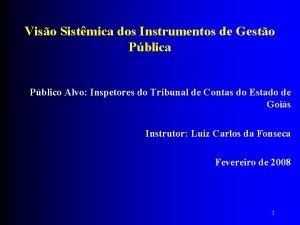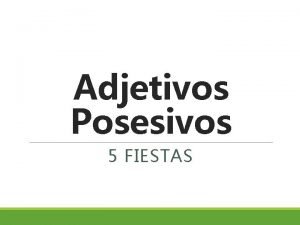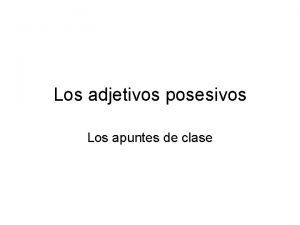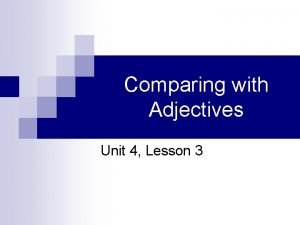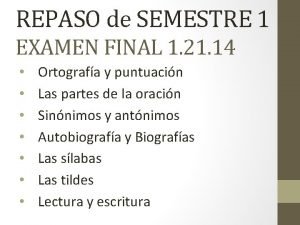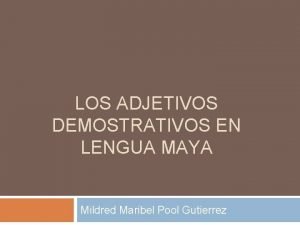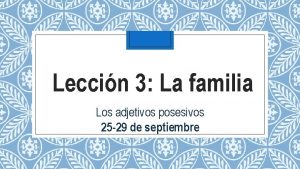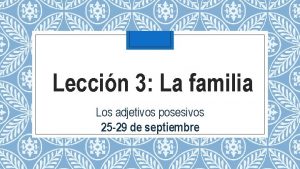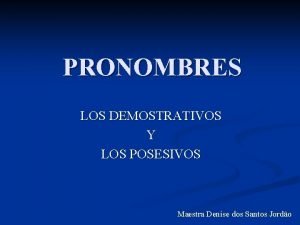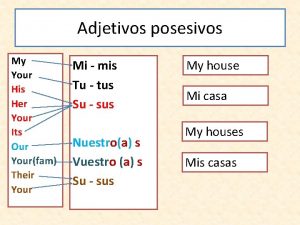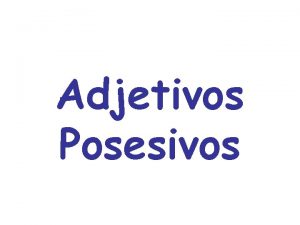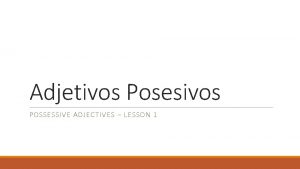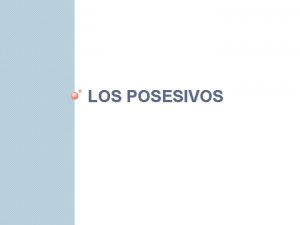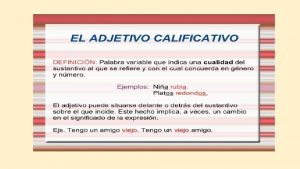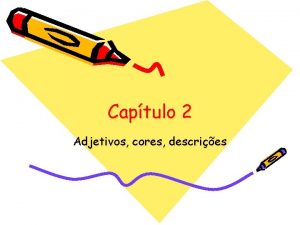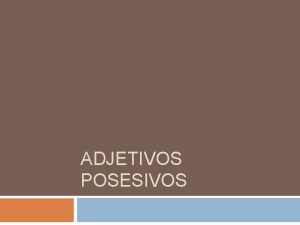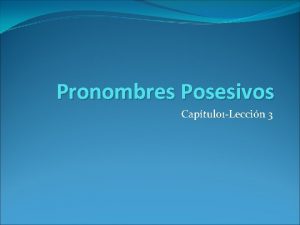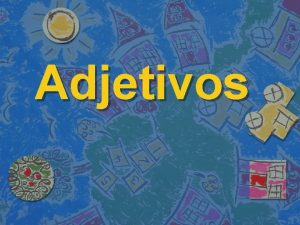ESPAOL UNO CAPTULO 6 ADJETIVOS POSESIVOS Adjetivos Posesivos













- Slides: 13

ESPAÑOL UNO CAPÍTULO 6 ADJETIVOS POSESIVOS

Adjetivos Posesivos • Possessive adjectives, like descriptive adjectives, are words that are used to describe people, places, or things. • Possessive adjectives express the quality of ownership or possession.

Formas de los adjetivos tu / tus nuestro / nuestros nuestra / nuestras vuestro / vuestros vuestra / vuestras su / sus mi / mis

inglés -v- español • In English, possessive adjectives do not agree in gender and number with the nouns they modify. my cousins my aunts

Adjective Rule • Spanish possessive adjectives agree in # & gender with the noun modified. mi primo mis primos mi tía mis tías

• The forms nuestro and vuestro agree in both gender and number with the nouns they modify. nuestro primo nuestros primos nuestra tía nuestras tías

Placement • Possessive adjectives are always placed before the nouns they modify. —¿Está tu hermano aquí? —No, mi hermano está en la biblioteca.

• Because su and sus have multiple meanings (your, his, her, their, its), you can avoid confusion by using this construction instead: [article] + [noun] + de + [subject pronoun]. sus parientes los parientes de él/ella his/her relatives los parientes de Ud. /Uds. your relatives los parientes de ellos/ellas their relatives

¡Vamos a practicar! 1. Es ______ (my) libro. mi It is my book. Mi 2. ______ (My) familia es ecuatoriana. My family is Ecuatorian. Tu 3. ______ (Your; fam. ) esposo es italiano. Your husband is Italian.

Nuestro (Our) profesor es español. 4. ______ Our teacher is Spanish. su 5. Es ______ (her) reloj. It is her watch. tu 6. Es ______ (your; fam. ) mochila. It is your backpack.

su 7. Es ______ (your; form. ) cuaderno. It is your binder. Su 8. ______ (their) sobrina es alemana. Their cousin is German. Sus 9. ______ (her) primos son franceses. Her cousins are French.

10. Nuestros ______ (Our) primos son canadienses. Our cousins are Canadian. sus (their) lápices. 11. Son ______ They are their pencils. Sus (Their) nietos son japoneses. 12. ______ Their grandkids are Japanese.

nuestras (our) plumas. 13. Son ______ They are our pens. 14. Es ______ (your; fam. ) planta. tu It is your plant. 15. ______ Mis (my) amigas son inglesas. My (girl)friends are English. 16. Son ______ sus (his) cuadernos. They are his notebooks.
 Https://slidetodoc.com/captulo-2-o-sudeste-e-o-sul-do/
Https://slidetodoc.com/captulo-2-o-sudeste-e-o-sul-do/ Https://slidetodoc.com/captulo-2-o-sudeste-e-o-sul-do/
Https://slidetodoc.com/captulo-2-o-sudeste-e-o-sul-do/ Filastrocca degli elefanti
Filastrocca degli elefanti Adjetivos posesivos
Adjetivos posesivos Encierra los adjetivos posesivos
Encierra los adjetivos posesivos Unit 1 lesson 3 los adjetivos posesivos
Unit 1 lesson 3 los adjetivos posesivos Bae significado
Bae significado Adjetivo demostrativos
Adjetivo demostrativos La pluma es de ____ suegro.
La pluma es de ____ suegro. Los tios de ellos regresan
Los tios de ellos regresan How to show possession in spanish
How to show possession in spanish Cuentos cortos con adjetivos subrayados
Cuentos cortos con adjetivos subrayados Their our your
Their our your Participio pasado de speak
Participio pasado de speak
